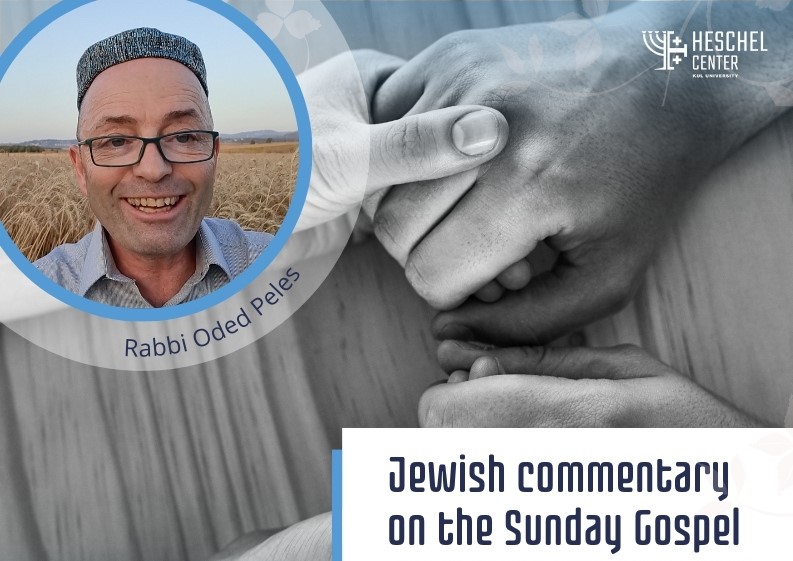“Bat Kol” – “Divine voice” in the Biblical and Rabbinical Tradition
 “Bat Kol” – “Divine voice” in the Biblical and Rabbinical Tradition
“Bat Kol” – “Divine voice” in the Biblical and Rabbinical Tradition
In the Gospel according to John (12, 28-30), we read: "Then a voice came from heaven, “I have glorified it and will glorify it again…Jesus answered and said: “This voice did not come for my sake but for yours". A heavenly or prophetic voice is a well-known phenomenon which appears frequently in Jewish Rabbinic literature and tradition. It is a message from God to human beings through sound. It's often called in Hebrew: Bat Kol (daughter of voice).
When do human beings begin to hear the Bat Kol, the voice, and for what purpose?
God reveled himself to the Israelites at mount Sinai and spoke with Moses directly. Once Moses passed away God spoke to the nation through prophets and their visions. The direct speech and prophesies was later echoed by Bat Kol. The heavenly voice.
The Babylonian Talmud tells us that historically, the divine direct messages and commands from God, which used to appear in the Temple and by the prophets, stopped during the second Temple period, at the end of the Hebrew Bible period. It was substituted by the divine voice. Rabbi Abba said: "… all that remained from the Divine Presence during the Second Temple period, was the Divine Voice, as it was taught by early Mishnaic scholars. After the last prophets Haggai, Zechariah, and Malachi died, the Divine Spirit of prophetic revelation departed from the Jewish people, and they were still utilizing the Divine Voice, which they heard as an echo of prophecy" (Yoma pg. 9b).
Two types of Bat Kol
There were two types and purposes for the appearance of a Bat Kol - the voice. One purpose, the more common was to indicate a moral message. For example - to educate how important is the study of Torah. Rabbi Joshua ben Levi said: every day a Bat Kol (a heavenly voice) goes forth from Mount Horeb (Sinai) and makes proclamation and says: “Woe unto humankind for their contempt towards the Torah”, for whoever does not occupy himself with the study of Torah is rebuked" (Mishnah Avot 6b). Another purpose is to indicate the fate or value of an individual: "At the time of the death of Rabbi Yehuda Ha'Nasi, he raised his ten fingers toward Heaven and said in prayer: Master of the Universe, it is revealed and known before You that I toiled with my ten fingers in the Torah, and I have not derived any benefit from the world even with my small finger. May it be Your will that there be peace in my repose. A Divine Voice emerged and said: “He who walks uprightly enters into peace, they find rest in their beds” (Isaiah 57:2).
Halachic intervention
The other type of voice was for a legal Halachic intervention. However, the later was never accepted by the scholars. The most famous case was the dispute between Rabbi Eliezer and the Rabbis regarding the Halacha, the law concerning the impurity of an oven (Talmud, Bava Metzia 59b). Rabbi Eliezer then said to them: If the halakha (law) is in accordance with my opinion Heaven will prove it. A Divine Voice emerged from Heaven and said: Why are you differing with Rabbi Eliezer, as the halakha is in accordance with his opinion in every place that he expresses an opinion? Rabbi Yehoshua stood up and said: It is written “It is not in heaven” (Deuteronomy 30:12). …Rabbi Yirmeya says: Since the Torah was already given at Mount Sinai, we do not uphold a Divine Voice, as it was already written on Mount Sinai, in the Torah: “Do not be the follower of the majority to do evil” (Exodus 23:2). Since the majority of Rabbis disagreed with Rabbi Eliezer’s opinion, the halakha is not ruled in accordance with his opinion".
The Talmud concludes the story of the dispute, with an astonishing reaction of God almighty himself which was delivered by Elijah the prophet: "Years after, Rabbi Natan encountered Elijah the prophet and said to him: What did GOD, the Holy One, Blessed be He, do at that time, when Rabbi Yehoshua issued his declaration? Elijah said to him: The Holy One, Blessed be He, smiled and said: My children have triumphed over Me; My children have triumphed over Me".
About the Author
Rabbi Oded Peles – cantor, musicologist, Israeli educator and tour guide. Oded Peles was born in Petach Tikva, Israel to a Dutch-German Jewish family. Following in the footsteps of his grandfather, a renowned cantor of the Rotterdam synagogue, the Netherlands, Oded has served and performed as a Cantor in communities worldwide, for over thirty years.












